AstraZeneca worldwide: Who’s using the jab, and who’s not
The chief executive of AstraZeneca has been criticised for not defending the vaccine while in Australia, as nations look at other options.
World
Don't miss out on the headlines from World. Followed categories will be added to My News.
The chief executive of AstraZeneca, Pascal Soriot, has been criticised for not defending the effectiveness of the company’s vaccine, as it was revealed the jab has links to rare blood clots.
Mr Soriot has reportedly been in Australia with his wife and children since Christmas, according to the UK Telegraph.
Ketan Patel, a fund manager at EdenTree Investment Management, which has a stake in AstraZeneca, said Mr Soriot’s absence “did not give the right signal or message”.
“If we were grading the PR effort, they could do better,” he told the Telegraph.
“If you look at the data, and see that the chances of getting a blood clot with this vaccine is about four in one million, compared to four in 10,000 for the contraceptive pill, that perspective needs to be highlighted.”
“Where is the chief executive in terms of articulating the healthcare benefits? He hasn’t been that public and being halfway around the world doesn’t give the right signal or message,” Mr Patel said.
A spokesperson for AstraZeneca said Mr Soriot would return to the company’s European offices after travel restrictions were eased.
“Travel restrictions and local lockdowns mean it makes little sense to be travelling right now, particularly given that many countries require quarantine,” the spokesperson said.
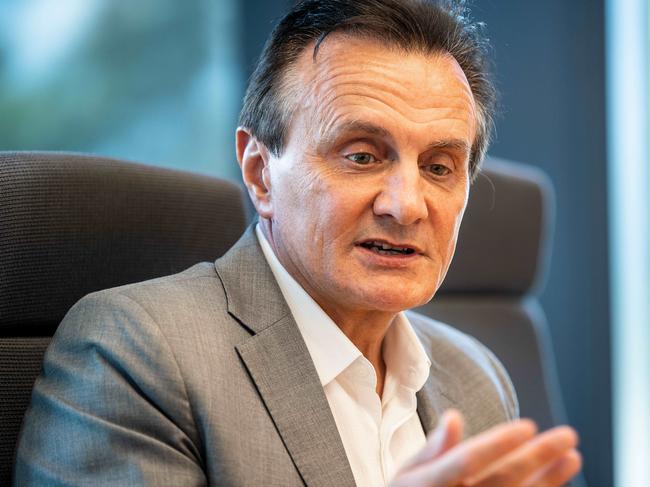
The fallout over the AstraZeneca jab has caused global concern with several countries halting its use among younger people, as nations raced to secure much-needed vaccines in the face of fresh virus surges.
Europe’s medicines regulator said this week the AstraZenea vaccine could cause very rare blood clots among some recipients, prompting a cascade of countries to pull the plug on giving it to people under a certain age.
Britain sought to quell fears over the jab, saying the potential side effects were extremely rare -- and the risk of getting seriously sick from Covid-19 was far greater.
The furore over the jab comes as a number of countries battle mounting caseloads and deaths, more than a year into the pandemic that has killed almost 2.9 million people worldwide and ravaged the global economy.
Germany sparked controversy after launching talks with Russia about purchasing doses of its Sputnik V coronavirus vaccine without waiting for coordinated EU action.
Health Minister Jens Spahn said the EU had decided it will not sign contracts for Sputnik.
“So I said we will hold talks with Russia,” he admitted as Germany needs more vaccines quickly.
Two German regions have also joined Hungary and Slovakia in ordering Sputnik V. Austria is preparing to buy a million doses, the first 300,000 of which are expected within weeks. Bavaria also announced plans to open the EU’s first state-backed factory for the vaccine.
The African Union, which represents 55 countries, abandoned its plan to buy the vaccine, saying that it would turn to Johnson & Johnson’s single-shot jab.
On the AstraZeneca front, the Netherlands and Portugal became the latest countries to restrict the use of the vaccine to older populations -- mostly over 60 -- joining a list that includes Australia, the Philippines, Italy, France, Germany, Spain and Canada that took the decision earlier.
“It has not been our practice to jump at shadows, it has not been our practice to take unnecessary precautions,” Australian Prime Minister Scott Morrison said as he announced the measure.
“We’ve been taking the necessary precautions based on the best possible medical advice.”
The decision came after the European Medicines Agency said blood clots should be listed as a “very rare” side effect of the jab, though it did not say any particular groups were at greater risk.
Britain said it would offer people under 30 “alternative” vaccines to AstraZeneca -- the country has also approved Pfizer and Moderna jabs -- but on Thursday sought to reassure people about getting inoculated.
“The vaccines are safe, and if you want to have the Pfizer vaccine or Moderna vaccine instead then that is fine,” Health Secretary Matt Hancock told the BBC.
“Covid is a horrible disease and long Covid affects people in their 20s just as much it seems as any other age group and can have debilitating side effects that essentially ruin your life.” AstraZeneca has been dogged by controversy -- first banned by some governments for older people over lack of data, then banned outright over clot fears.
It is stored at a warmer temperature and billed as the vaccine of choice for poorer countries since it can be transported more readily than some counterparts.
It has already been administered in 111 countries -- more than its competitors Pfizer/BioNTech and Moderna put together -- according to an AFP database from official sources.
The Covax programme, which provides vaccine doses to poorer countries, was unequivocal.
“The AstraZeneca vaccine remains an important public health tool against the Covid-19 pandemic and is effective at preventing severe cases, hospitalisation and death,” said a spokesman for the Gavi vaccine alliance, one of the groups heading the Covax initiative.
Governments are hoping the vaccines will help them emerge from the pandemic, but with demand far outstripping supply many are scrambling to secure much-needed doses -- as fresh waves lash several countries.
More than 700 million people across India were facing coronavirus vaccine shortages after stocks dried up, even as the country saw a record 126,000 new infections in the past 24 hours.
And Indonesia said the delivery of over 100 million AstraZeneca doses could be delayed because of export restrictions in India -- which produces the jab -- and company supply holdups.
“This is not something we can accept. We immediately communicated with AstraZeneca,” Indonesian Health Minister Budi Gunadi Sadikin said.
Meanwhile Poland reached a grim new record of more than 950 deaths in the past 24 hours -- the highest yet -- while Iran’s cases passed the two million mark.
President Hassan Rouhani’s government was under fire for allowing travel during the new year holiday, which many blamed for a spike in cases.
“Some prevented us from using the golden opportunity to put out the coronavirus fire,” deputy health minister Iraj Harirchi said, describing the infection rate as “meteoric”.
And in Venezuela, the government said economic sanctions against President Nicolas Maduro’s administration had blocked it from buying the 30 million vaccines it needed.
The crisis has forced some in the hard-hit country to seek support online via crowdsourcing.
ASTRAZENECA: WHO’S USING IT, WHO ISN’T
As Australia says those under the age of 50 should preferably get the Pfizer COVID-19 vaccine after the AstraZeneca jab was linked to “rare but serious blood clots”, the vaccine’s rollercoaster ride has taken another twist with a growing list of countries restricting its use over “very rare” blood clots.
While Britain, whose Oxford University developed the vaccine, now no longer recommends it for the under 30s, South Africa has rejected it outright.
Nevertheless, the vaccine is still the most widely used in the world and remains cheaper and easier to store than its competitors.
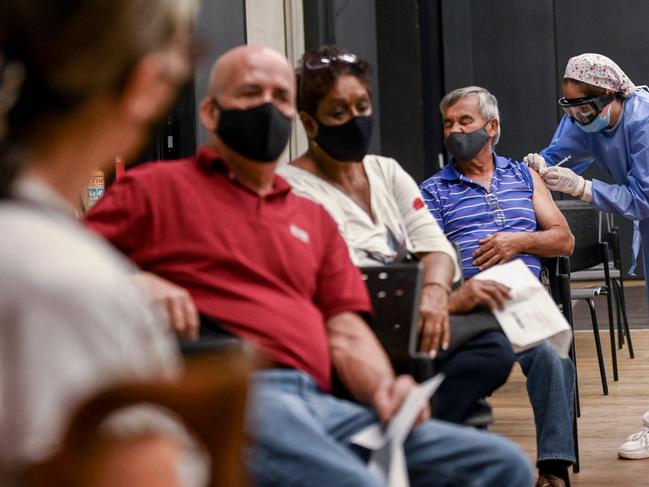
It has already been given in some 111 countries — more than its competitors Pfizer/BioNTech and Moderna put together.
South Africa suspended its vaccine rollout — meant to begin with AstraZeneca in February — after a study found the jab failed to prevent mild and moderate illness caused by a variant found there.
Instead it offered its doses to the African Union.
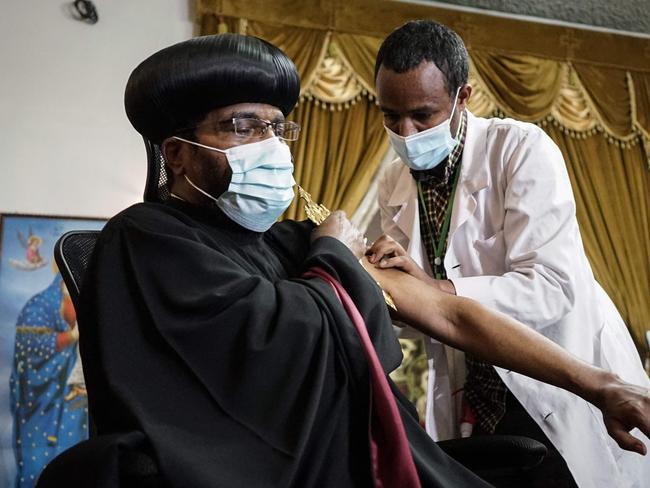
SUSPENDED
More than a dozen countries including the biggest European Union nations suspended AstraZeneca shots in mid-March because of fears over blood clots and other possible side effects.
Most then restarted using it after Europe’s drugs regulator said it was “safe and effective”.
But some other countries continued their suspensions, including Norway and Denmark.
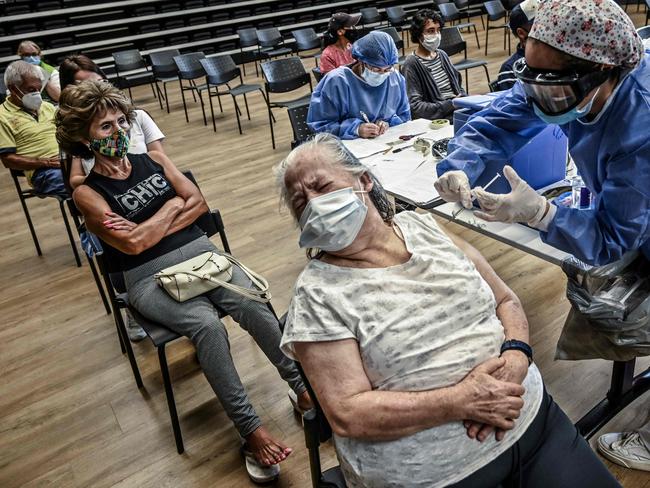
RESTRICTED
Many countries have resumed the vaccine’s use only for older people, aged 55 and above, because the clots tend to affect younger people more.
These include France, Canada, Germany, the Netherlands, Finland, Iceland and Sweden as well as Canada.
But the doubts about blood clots did not go away, and the EU and British drugs regulators said Wednesday that it was linked to clotting in some rare cases.
Spain, the Philippines and Italy reacted by suspending the jab for people under 60 while Belgium restricted it to over 55s.
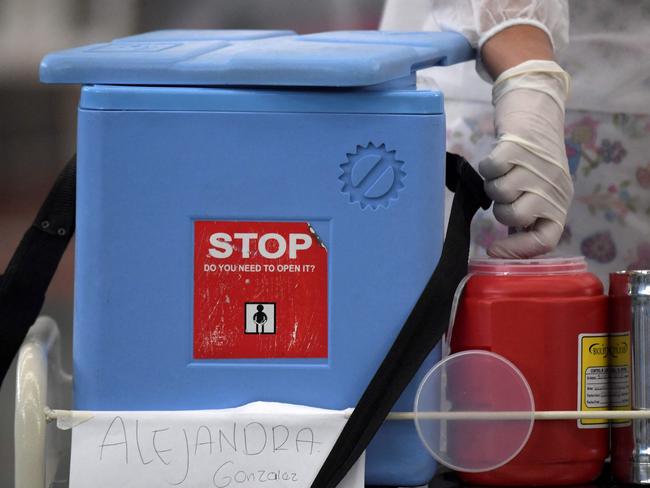
Oxford University has suspended trials on children following the new concerns. Britain, which has already given more than 20 million doses of jab, says it will now offer alternative vaccines to young people.
Despite criticisms over supply difficulties and safety concerns, the AstraZeneca vaccine is today being administered in around 111 countries and territories.
The jab also forms the bulk of those being given for free to poorer countries under the Covax scheme led by the WHO, the Gavi vaccine alliance and the Coalition for Epidemic Preparedness Innovations.
COVAX BACKS ASTRAZENECA VACCINE
Meanwhile, Covax backed the AstraZeneca jab as the scheme celebrated shipping coronavirus vaccine doses to 100 different territories around the world, despite delays dogging deliveries.
AstraZeneca’s COVID-19 vaccine accounts for almost the entire first wave of doses being distributed via the facility, which ensures the 92 poorest participating economies can access jabs for free.
But the program has been hit by delays after New Delhi put the brake on exports from the Serum Institute of India plant to deal with a rampant second wave of COVID-19 infections.
The SII is one of two sites producing AstraZeneca doses for Covax. The other is in South Korea.
Covax’s first wave intended to distribute some 238.2 million doses to 142 participating economies by May 31.
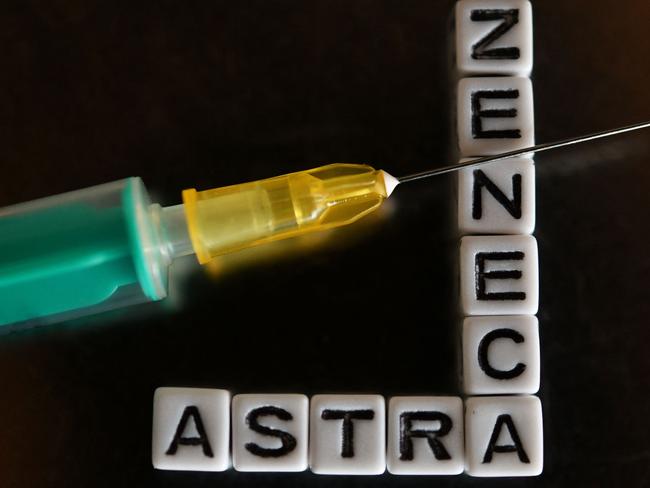
Of those, 237 million are AstraZeneca doses and 1.2 million are Pfizer/BioNTech. A number of nations have suspended the use of AstraZeneca’s vaccine for younger populations after it was earlier banned outright in several countries over blood clot scares.
The EU’s medicines regulator said Wednesday that blood clots should be listed as a rare side effect of the AstraZeneca jab, stressing benefits continue to outweigh risks.
And the World Health Organisation’s immunisation experts said a causal link was “considered plausible but is not confirmed”, adding that reported occurrences were “very rare”.
The risk-benefit balance remains “very much in favour of the vaccine” the WHO said.
Covax is co-led by the WHO, the Gavi vaccine alliance, and the Coalition for Epidemic Preparedness Innovations.
Gavi said safety and efficacy was the “top priority for Covax”. The scheme follows WHO guidance on vaccine products, which “remains unchanged” for the AstraZeneca jab, a Gavi spokeswoman said.
“The AstraZeneca vaccine remains an important public health tool against the COVID-19 pandemic and is effective at preventing severe cases, hospitalisation and death.”
FRANCE HITS 10M JAB TARGET
Meanwhile, France has given a first jab of a vaccine against COVID-19 to 10 million people, Prime Minister Jean Castex announced on Thursday (local time) amid an acceleration in the rollout after a sluggish start.
“It’s a very good performance. France is vaccinating a lot,” Mr Castex said after visiting an inoculation centre east of Paris, hailing the figure of 10 million first jabs one week ahead of a government target.
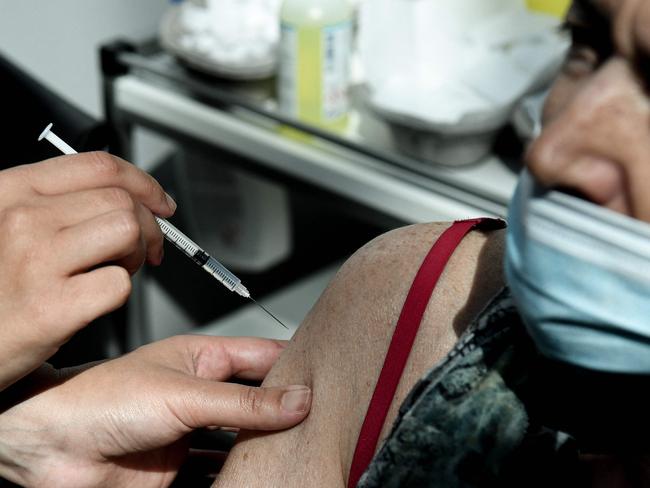
France fell behind its European neighbours after the start of vaccinations in January, but is now jabbing on average around 200,000-300,000 people per day.
EU members have faced a shortage of doses which has been blamed on a centralised purchasing and distribution system.
French President Emmanuel Macron has compared European efforts to a “diesel engine”.
“It starts slowly but it goes far,” he told Greece’s ERT channel last month. The government has forecast 20 million first time jabs by mid-May and 30 million by mid-June.
Meanwhile, the French Open has been delayed by a week to May 30 in the hope that heightened restrictions in Paris will have eased to allow the maximum number of fans to attend one of the big four annual tennis tournaments.



